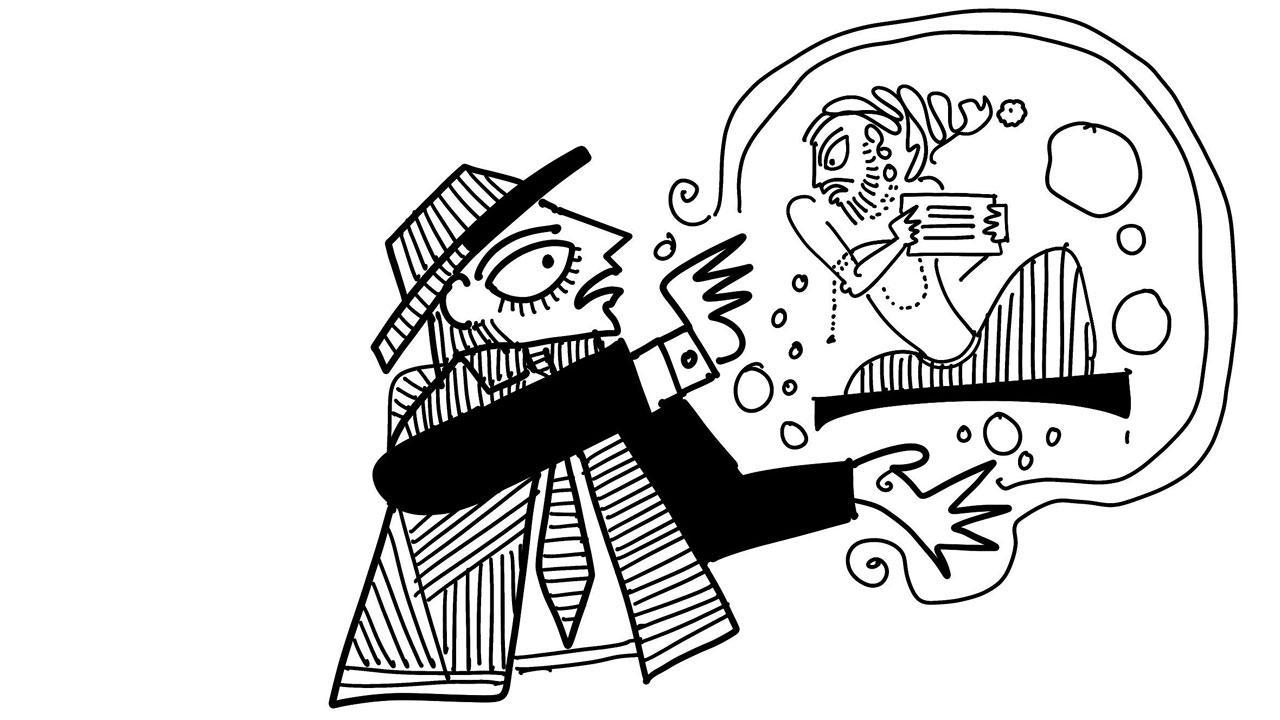They even use words like plagiarism without actually knowing what it means.

Illustration/Devdutt Pattanaik
 Recently, a very senior gentleman argued that Europeans stole science from the Vedas. He kept quoting verses from Vedas to prove how everything from gravity to Newtonian physics can be traced to the Rig Vedic mantras. Nobody in the room knew the Vedas, or science, so no one could challenge him, but the idea made everyone feel good. And because it made everyone feel good, everyone seemed to agree with him.
Recently, a very senior gentleman argued that Europeans stole science from the Vedas. He kept quoting verses from Vedas to prove how everything from gravity to Newtonian physics can be traced to the Rig Vedic mantras. Nobody in the room knew the Vedas, or science, so no one could challenge him, but the idea made everyone feel good. And because it made everyone feel good, everyone seemed to agree with him.
On the Internet, one finds a lot of quotations claiming scientific truths within the Vedas. When you cross check this with other texts, with more meticulous translations of the Vedas, you realise these are cases of enthusiastic amateurs cleverly twisting words, misusing metaphors to suit their own poor understanding of science. They even use words like plagiarism without actually knowing what it means.
This affliction is not unique to India, or Hindus. We find this everywhere. For example, there are people who claim that the Bible has all information about later scientific discoveries such as time, space, matter, energy, that there are references in science to astronomical phenomena that were discovered only in recent times.
Same is true in Islam. We are told that the Quran contains everything from relativity to quantum mechanics to Big Bang theory to black holes to thermodynamics. These are appealing to people who have never actually read the Holy Scriptures, nor have a good understanding of science. Even the people making these cases, if and nor to check the credibility. They seem to be mediocre scholars with neither understanding of the scriptures and their ancient languages, nor an understanding of science. It is the confidence which they speak that works and the yearning of the audience to believe them that makes it true.
So what exactly is this tension between science and religion? For a long time, religion claimed it knew the truth about the world. But then science emerged and offered technology that solved real material problems. Antibiotics. Steam Engines. Electricity. Computers. Statements could be proven, arguments had evidence, promises could be measured and made predictable. Everything that religion could not do. So, science overtook religion and claimed it could solve all problems.
In the 21st century, however, we have realised that science doesn’t solve all problems, technology doesn’t solve all problems. If anything, it has amplified social inequality and intensified environmental pollution. Science is now the enemy—not the panacea it claimed to be. So now, religion is back, striving hard to reclaim its lost position.
Science, basically, is based on doubt and measurement. It can solve material problems, not psychological problems or social problems. Science can create great weapons and technology but it cannot bring peace and harmony, it cannot reduce jealousy, pride, arrogance, and therefore more and more people are turning to religion to solve their problems. Religion is based on faith, on stories, and it relies on the testimony of the guru to whom one surrenders intellectually and emotionally. These are two very different ways of looking at the world and to compare the two is nothing but silliness, stupidity, born of insecurity.
The author writes and lectures on the relevance of mythology in modern times. Reach him at devdutt.pattanaik@mid-day.com
 Subscribe today by clicking the link and stay updated with the latest news!" Click here!
Subscribe today by clicking the link and stay updated with the latest news!" Click here!










